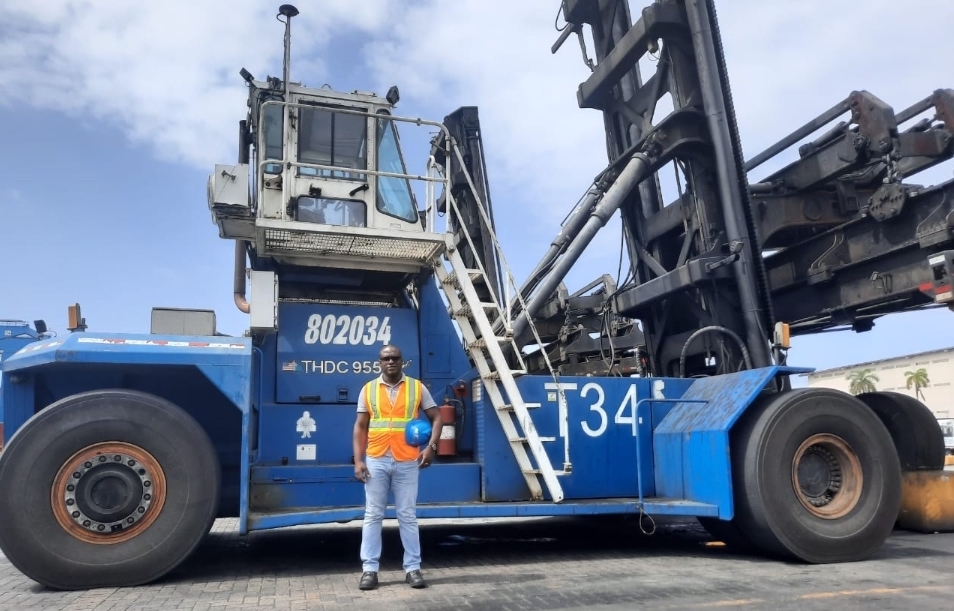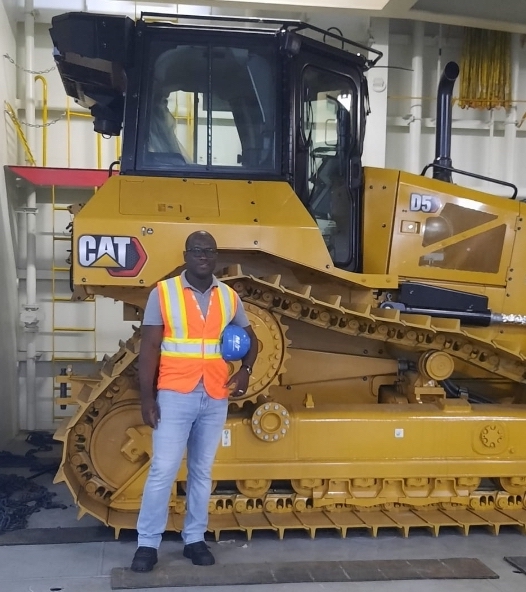
Technical Maritime Training Program with the Caribbean Maritime University
There’s no better way to learn than with hands-on experience. And that’s exactly what students get from the Technical Maritime Training Program, a joint venture of the Caribbean Maritime University, Panama’s Manzanillo International Terminal (MIT), and Tideworks. It began at the end of 2018.
The program grants scholarships to deserving recipients to attend a six-week intensive training course held onsite at the MIT facility. Attendees receive exposure to advanced terminal operations training, including using the Tideworks platform for terminal management. More specifically, training is provided in the following areas.
- Terminal operations business and worldwide and port marketing
- Workforce management
- Operational systems and automation
- Managing terminal operations (containers and RoRo)
- Business development and performance
- Port engineering management (facilities)
- Safety and security
- People and equipment management, assignment and dispatch
- Port environmental concerns (conservation program)
Two scholarships are allowed each year to strengthen the capabilities of port management professionals. A greater talent pool improves Latin American and Caribbean logistics, a boon for the region’s competitiveness.
The program’s inaugural scholarships went to two deserving individuals with existing experience in the industry. The first was the Kingston Wharves Terminal Operations Manager and the second a CMU Instructor in charge of the B.S. in Port Management Degree Programme.
This article will follow the experiences of the CMU Instructor’s story. As you’ll see, the pandemic turned his six-week training course into a four-month saga filled with excitement, opportunity, and a training experience beyond his wildest dreams.
Meet Keldon Green
Keldon is a lecturer at the Caribbean Maritime University. He was chosen for the program because of his passion for logistics and his access to the next generation of terminal operators. But his journey to the program started much earlier.
It was high school where Keldon first picked up on his keen interest in logistics when faced with a choice of universities and disciplines. He was close to his school’s vice principal, and the two regularly discussed his future. He’d narrowed his career path down to logistics or environmental physics, and as he puts it, “We didn’t know where environmental physics would go,” so he selected logistics, a fateful decision that set his course.
His scholarship wasn’t the first time he got to travel for training. He and his supervisor had the opportunity to visit Ningbo-Zhoushan and the port of Shanghai, China, where they studied port development for developing countries.
Keldon’s appetite for the knowledge he gained on that trip, and his ability to share it with his students made him the perfect candidate for our program’s training scholarship. His supervisor made the recommendation, and he was on his way!
He Got More Than He Bargained For
His first couple of weeks in Panama were exactly what he expected. He received hands-on experience with various Tideworks products and learned how MIT handled its operation. He sat in on sessions focused on yard planning, vessel planning, and logistical concerns. He gained incredible knowledge from the various operational teams. And then the pandemic arrived.
Shortly after, Panama shut down personal travel in and out of the country. With a few weeks left in his stay, Keldon suddenly found himself trapped. So he and his hosts made the best of it, and his six-week training course became a four-month crash course in everything to do with terminal operations.
He went from being a student to working within the operation. He helped in the Training and Development Department translating critical documents from Spanish to English. He spent time writing exams. He also wrote a proposal for the program, which involved using simulations to teach essential skills to larger groups of people.
And of course, he got to know the MIT operation inside and out. He missed his family, students, and job, but his four months in Panama became a transformative experience. As he put it, “I have to commend them because at no point in time did they make me feel like I was a burden. They always found something for me to do. So the experience was a very, very good one.”
He Has Big Plans for the Future
Keldon’s extended experience in the Technical Maritime Training Program has forever altered the trajectory of his career. Before, he was satisfied with his role in academia. Now, having gotten so involved in the day to day of terminal operations, his entrepreneurial spirit has been unleashed.
He says he’d like to one day start his own shipping company or courier service. He sees himself getting deeply involved in the logistics and supply chain industry. But until then, he plans to begin lecturing about all of the lessons he learned, and the hard realities of logistics during a pandemic.
If he could only convey one message to his students, he would tell them to be open-minded about every experience they have. His time in China and then in Panama showed him that no one terminal runs its operation the same way. Each has its strengths and weaknesses, which means that you can learn something new everywhere you go. He realized that while classroom learning is essential, there’s no substitute for real-world experience.
While Keldon’s future has been clarified, the program’s future is a bit murkier. Keldon has since returned home, but the method of how the program engages its students is fluid. Training will likely go online for some time. But the vision is still very much alive — giving the Caribbean greater exposure to advanced terminal operations and the Tideworks family of software.
To learn more about the Bachelor of Science in Port Management from the Caribbean Maritime University in Kingston, Jamaica, visit www.cmu.edu.jm. To get more information about the Manzanillo International Terminal in Panama, visit https://www.mitpan.com/en/.

